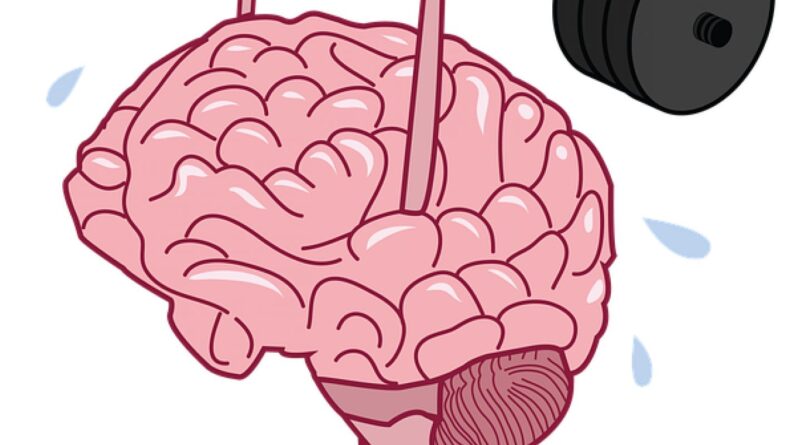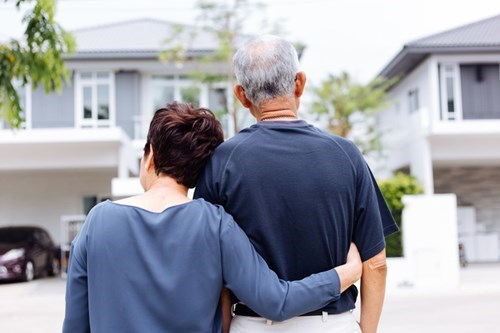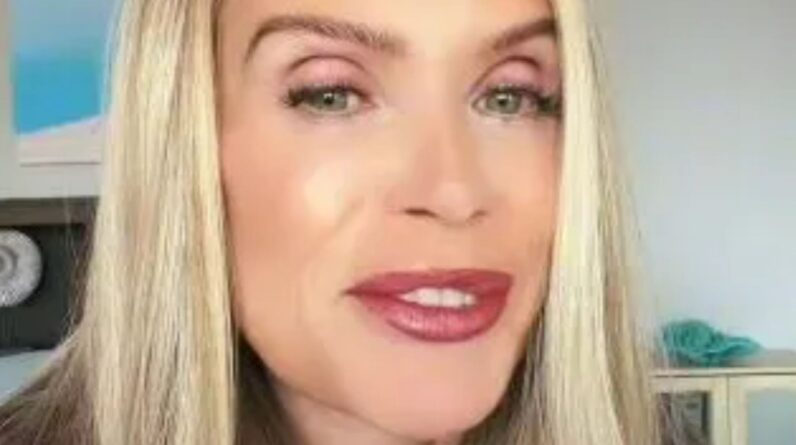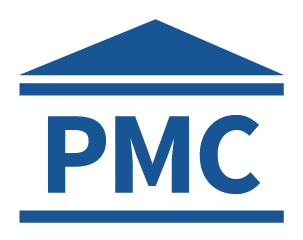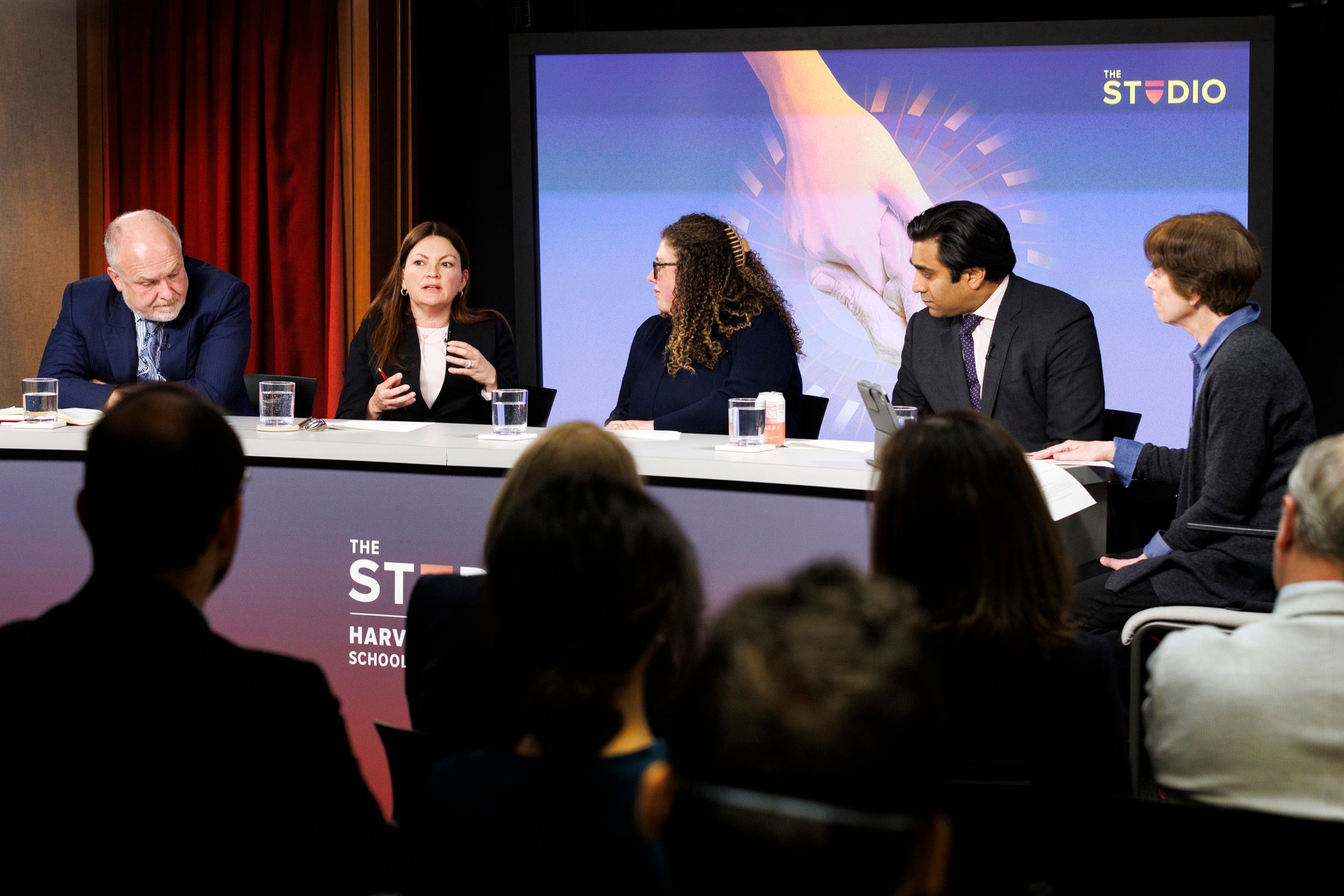
Folks of their 70s, 80s, and even 90s run marathons, write books, and go to work every day. However the predominant nationwide dialog on getting old focuses on incapacity slightly than potential, one thing specialists say is an issue as participation of America’s older adults grows extra necessary, economically and socially, as the nation ages.
And it’s not simply the younger with the perspective downside. Caitlin Coyle, director of UMass Boston’s Middle for Social & Demographic Analysis on Ageing, mentioned a few of the greatest perpetuators of detrimental stereotypes are these rising older themselves.
“How we discuss about it’s highly effective,” Coyle mentioned Wednesday, as a part of a dialogue of the matter at the Harvard T.H. Chan College of Public Well being. “We do loads of internalized ageism with self-talk like ‘Oh, I really feel so outdated at the moment,’ or ‘I can’t try this,’ ‘I’m too outdated for that,’ or ‘I can’t keep up late.’ I think if we begin to interact individuals in pondering about how they discuss about getting old outwardly — and in addition how they think about getting old internally — we can actually begin to shift the societal narrative.”
The panelists at the occasion “A reexamination of getting old: Dwelling longer, happier, and more healthy” agreed attitudes about getting old set expectations for ourselves and others, however what’s additionally necessary are packages and insurance policies crafted to encourage wholesome getting old — through prevention and risk-factor discount, together with involvement in society, via work, volunteerism, household relationships, spiritual organizations, or different methods of partaking that may carry which means to life.
“I think if we begin to interact individuals in pondering about how they discuss about getting old outwardly — and in addition how they think about getting old internally — we can actually begin to shift the societal narrative.”
Caitlin Coyle
“We predict to outlast our dad and mom and grandparents. And the constructions we put in place to help wholesome getting old are actually essential,” mentioned New York Metropolis Well being Commissioner Ashwin Vasan, a Chan College graduate and member of the panel. “At each flip, we usually are not simply taking a look at the averted detrimental penalties of unhealthy getting old, however taking a look at the aspirational, forward-looking indicators of wholesome getting old.”
The dialogue hosted by The Studio at the Chan College was moderated by Kay Lazar, a reporter at The Boston Globe, and in addition featured Marisol Amaya, govt director of La Alianza Hispana, and Andrew Scott, professor of economics at London Enterprise College and creator of the e-book “The Longevity Crucial: How to Construct a More healthy and Extra Productive Society to Help Our Longer Lives.”
Panelists acknowledged that declining well being and rising incapacity are a part of the panorama as one grows outdated, however Scott mentioned plainly when individuals think about getting old they “go straight to the finish” the place these elements tackle higher significance.
He attributed a part of that to the “medicalization” of getting old, which focuses on well being issues and dying. However what’s misplaced in between are, for a lot of, years of elevated life satisfaction, higher acceptance of oneself and others, decreased strain to dwell up to beliefs of how to look and behave, higher emotional stability throughout crises, and new alternatives to study and develop new abilities.
“The difficulty with getting old is we have a tendency to go straight to the finish of life. And that’s one in all the the explanation why we don’t like to think about an extended life being about having extra future,” Scott mentioned. “How do you think about that? How do you put together for it? We see getting old as an occasion — you’re 65 years outdated — however it’s a course of that’s related to all ages. What are you able to do to handle that course of and the way do you be sure to make the most of it?”
The tendency to view getting old via a medical lens shouldn’t be the solely subject, nonetheless. Household construction in the nation has modified as individuals have fewer kids and multigenerational dwelling preparations develop much less widespread. This has led to an rising tendency to segregate society by age and worsened the downside of isolation amongst the aged.
At La Alianza Hispana, a social service company centered on the Latinx group of Better Boston, the aged are supplied programming based mostly on particular person preferences — bingo, as an example, isn’t for everybody and needs to be reserved for many who find it irresistible, Amaya mentioned. Others need to play devices, others to study one thing new, and nonetheless others to train.
Accordingly, the nonprofit’s elder-services program emphasizes flexibility, even hiring individuals nonetheless prepared to work and ready to draw on a lifetime of expertise. Some are missing in laptop and different tech abilities, however these will be taught, which the group does, she mentioned.
“We are versatile. We all the time encourage them to do extra, empower them, as a result of they see obstacles and say, ‘I can’t do it,’” Amaya mentioned.
As we create a society that’s extra elderly-friendly, Scott mentioned pondering about the economics of dwelling longer is necessary, since many concern outliving their assets.
But it surely’s additionally necessary to think about how to permit individuals to keep productive longer, which has to start earlier in life by guarding one’s well being via higher habits, pondering about how to make jobs extra age-friendly, and maybe shifting roles from people who require power to people who emphasize talent and expertise.
A big quantity of consideration should even be paid, panelists agreed, to lowering inequality in healthful getting old. The development towards more healthy getting old shouldn’t be common, with Black and brown communities making up a disproportionate variety of those that die earlier than 65, Vasan mentioned. That highlights the significance of addressing preventative well being in these communities in the a long time earlier than 65.
“I think inequity is an actual lacking piece in the dialogue, the public narrative, round longevity and getting old,” Vasan mentioned. “How do we create a civic expectation that more healthy, longer lives are extra equitably skilled? These usually are not mutually unique agendas. The fairness agenda is central to the life expectancy agenda. There isn’t a path that doesn’t undergo fairness. Addressing the causes of untimely dying will get us to more healthy, longer lives for everyone.”


